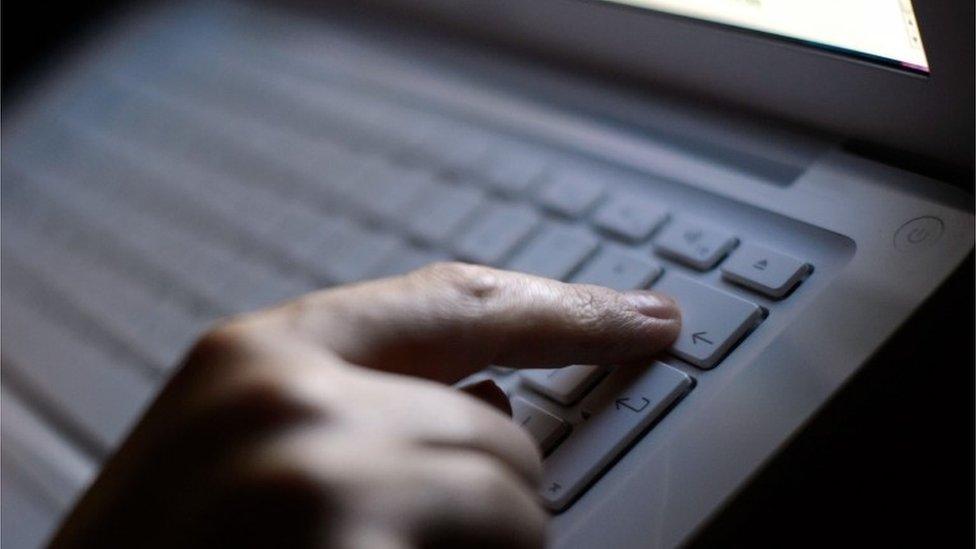UK cyber-defence chief accuses Russia of hack attacks
- Published
- comments
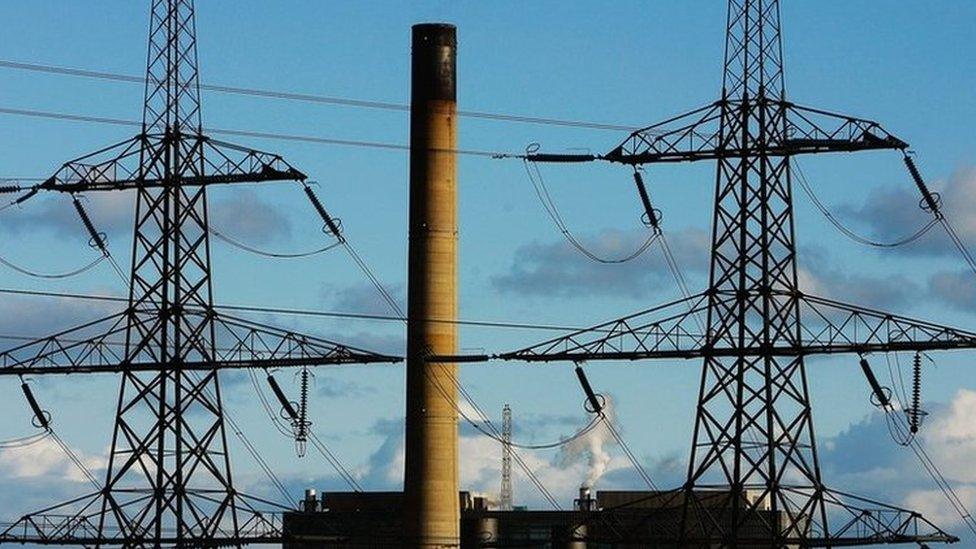
The National Cyber Security Centre said the UK's energy sector had been targeted
One of the UK's cyber-defence chiefs has accused Russia of having attacked Britain's media, telecommunications and energy sectors over the past year.
Ciaran Martin, chief executive of GCHQ's National Cyber Security Centre (NCSC), added that Russia was "seeking to undermine the international system".
His comments were made at an event organised by the Times newspaper.
Ahead of the speech, the paper reported that one of the attacks had targeted the UK's power supply, external on election day.
The Russian Embassy in London said it was concerned the assertions were misleading.
The NCSC was established about a year ago. Last month, it revealed that it had already classed a total of 590 attacks - from a variety of perpetrators - as being "significant", and that more than 30 incidents had been judged serious enough to require a cross-government response.
Mr Martin's accusations follow Prime Minister Theresa May's own claim that Russia had "mounted a sustained campaign of cyber-espionage and disruption".
The NCSC chief referenced this in his own speech.
"The prime minister made the point on Monday night - international order as we know it is in danger of being eroded," he said.
"This is clearly a cause for concern and the NCSC is actively engaging with international partners, industry and civil society to tackle this threat."
However, Russia has suggested the accusations are "non-transparent and biased".
"We would be interested in finding out the details and seeing the original findings on which the statements are based," the country's London embassy said.
"It would be most unfortunate to see [Britain] informed by wrong intelligence."
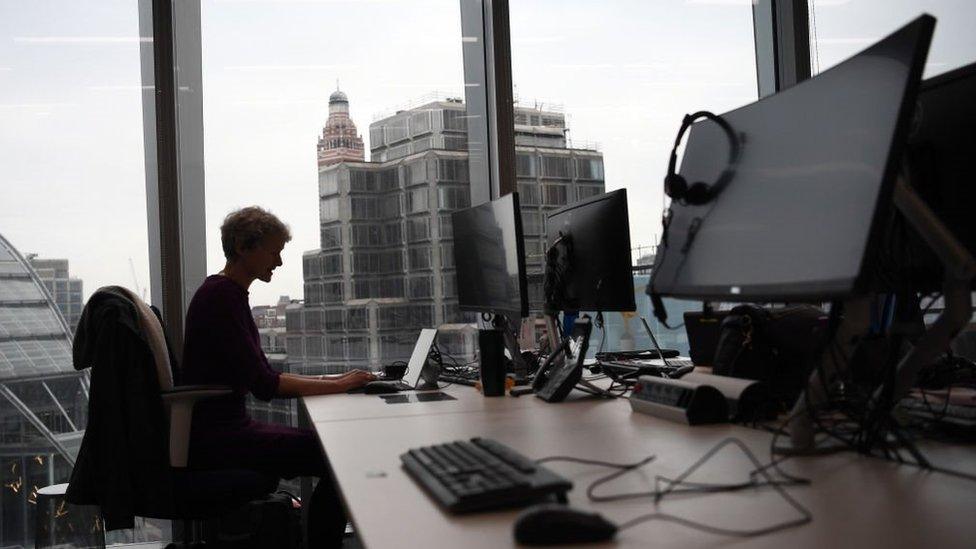
The London-based National Cyber Security Centre was launched in October 2016
To coincide with its event, the Times also published details of a new study into how Russia used Twitter to influence 2016's Brexit referendum.
The research indicates that more than 156,000 Russia-based accounts - many of them automated bots - mentioned #Brexit in original posts or retweets in the days surrounding the vote.
Many were in favour of the UK leaving the European Union, but a minority were pro-Remain. The academics involved believed the posts were seen hundreds of millions of times.
One of the researchers told the BBC that social media was providing Russia with a relatively cheap way to spread its propaganda.
'Powerful tool'
"Ukraine experienced [a similar] information war in 2014 - and if it worked in Ukraine it can also work in Western democracies," said Prof Sasha Talavera from Swansea University.
"One can use it to split society and marginalise groups. Social media nowadays is a powerful tool."
He added that some form of regulation of the large social media firms might now be required.
The Guardian reports details of a separate University of Edinburgh study that also presents evidence of Russia using Twitter, external to sway opinion in the lead-up to the Brexit vote.
The Kremlin has previously denied trying to meddle in the referendum.
But the chairman of the Commons Digital, Culture, Media and Sport Select Committee, Damian Collins, said he now wanted Twitter to share examples of tweets linked to a Russian "troll factory", known as the Internet Research Agency, about British politics.
- Published14 November 2017
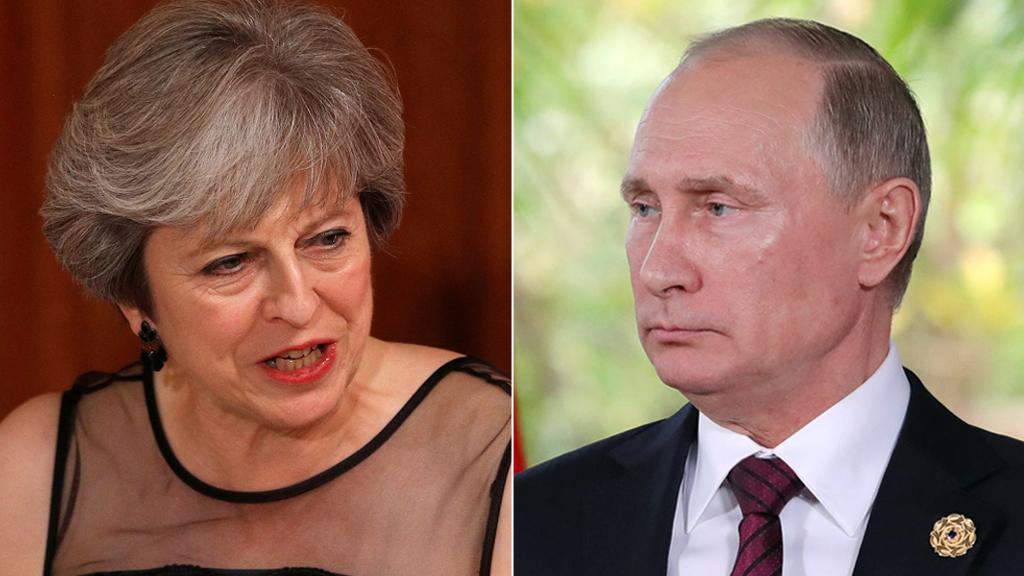
- Published14 November 2017
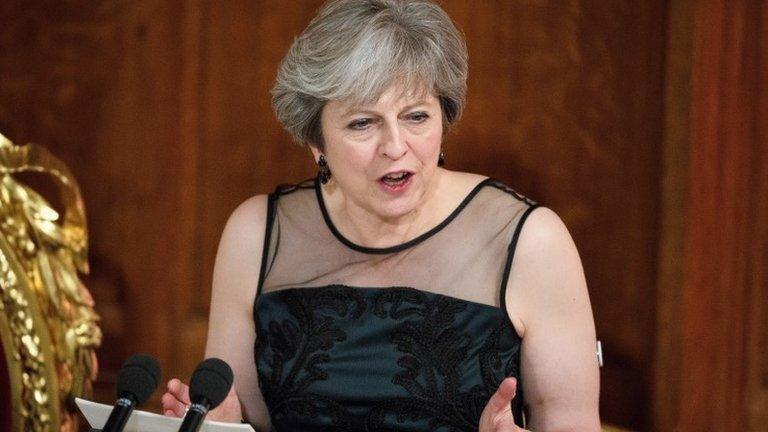
- Published14 November 2017
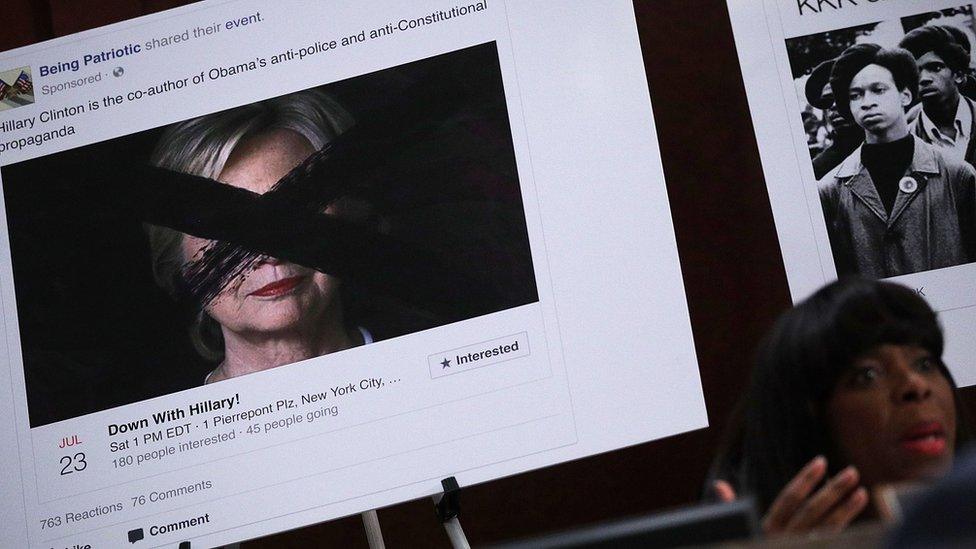
- Published3 October 2017
